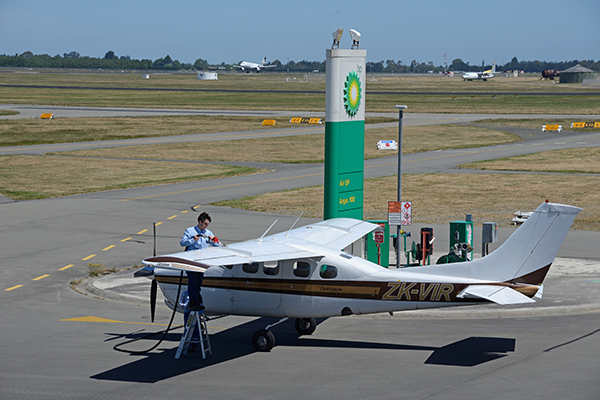Leaded avgas prices to increase in the wake of EU parliament lead import ban
 Toxic tetraethyl-lead, essential for the production of leaded avgas for piston aircraft is sourced only from China and Britain. In the aftermath of Brexit, EU Parliament came to review and amend Annex XIV to Regulation (EC) No 1907/2006 of the European Parliament and of the Council concerning the Registration, Evaluation, Authorisation and Restriction of Chemicals (REACH). These April 2022 amendments crucially restrict imports of tetraethyl-lead starting November 2023 and prevent any further import by 2025. The adapted strategy comes in line with The European Green Deal, signed in 2021, which aims to boost the efficient use of resources by moving to a clean, circular economy, stop climate change, and cut pollution. Nevertheless, the destined scarcity of tetraetyl lead entails avgas prices to rise due to the halt of local production, thus facilitating non-EU avgas import for replacement. A major question arises in search of alternate manufacturing capabilities, sufficient enough to match the required EU volumes. After all, annually 1/7th of the piston aircraft market finds buyers in the EU.
Toxic tetraethyl-lead, essential for the production of leaded avgas for piston aircraft is sourced only from China and Britain. In the aftermath of Brexit, EU Parliament came to review and amend Annex XIV to Regulation (EC) No 1907/2006 of the European Parliament and of the Council concerning the Registration, Evaluation, Authorisation and Restriction of Chemicals (REACH). These April 2022 amendments crucially restrict imports of tetraethyl-lead starting November 2023 and prevent any further import by 2025. The adapted strategy comes in line with The European Green Deal, signed in 2021, which aims to boost the efficient use of resources by moving to a clean, circular economy, stop climate change, and cut pollution. Nevertheless, the destined scarcity of tetraetyl lead entails avgas prices to rise due to the halt of local production, thus facilitating non-EU avgas import for replacement. A major question arises in search of alternate manufacturing capabilities, sufficient enough to match the required EU volumes. After all, annually 1/7th of the piston aircraft market finds buyers in the EU.
Importing avgas from the US may not be so obvious a solution, seeing EPA’s (Environment Protection Agency) commitment in regulating lead in aviation gasoline in the US. EPA stated it will propose an endangerment finding on leaded aviation gasoline by the end of 2022 and finalise it come 2023. The finding documentation is a required step before EPA, and the Federal Aviation Administration (FAA) can regulate lead in aviation gasoline. As of present, the US regulation method is unclear, wether it will be through production quotas, an additional environmental tax on fuel, or a radical avgas ban, which is already in practice in Reid-Hillview Airport in Santa Clara County. Such drastic changes are not to be ruled out, since August 2021, a study showed that leaded aviation gasoline increased blood lead levels among thousands of children living nearby a Santa Clara general aviation airport. If the EPA finding shows leaded avgas to be a hazardous emergency and FAA reacts in any measure of severity, it is certain to reduce avgas production, thus increasing its cost.
Many deem this combination of conditions to be the sunset of leaded avgas, meanwhile the average age of a piston aircraft globally is 30 years old. The calibration of an aircraft is centred around the aircraft’s engine, its mass and power, making an eco-fuel engine revision impossible. It is simply an unimaginable future where all avgas fuelled aircraft are at once disused, especially due to the present popularity of second hand aircraft sales. Therefore the reigning question prevails, what country will supply the EU market after 2025?
References
- https://eur-lex.europa.eu/eli/reg/2022/586/oj
- https://gama.aero/facts-and-statistics/statistical-databook-and-industry-outlook/2020-annual-data/
- https://www.faa.gov/regulations_policies/policy_guidance/envir_policy.
- https://www.epa.gov/newsreleases/epa-evaluate-whether-lead-emissions-piston-engine-aircraft-endanger-human-health-and









